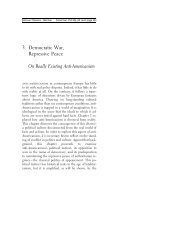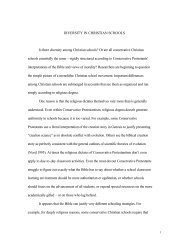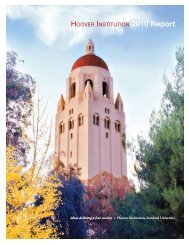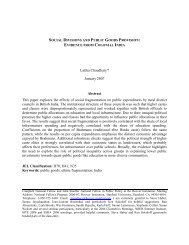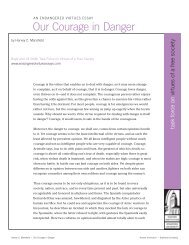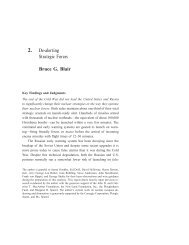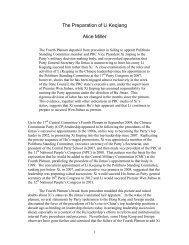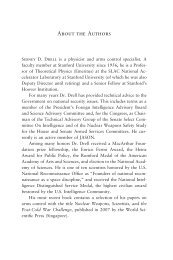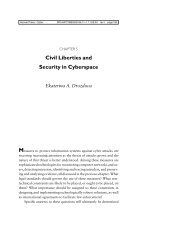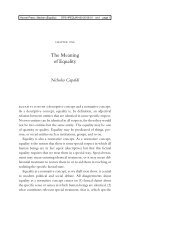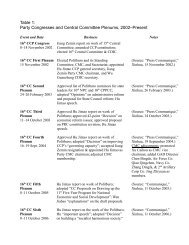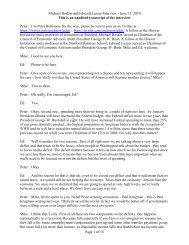A New Clandestine Service: The Case for ... - Hoover Institution
A New Clandestine Service: The Case for ... - Hoover Institution
A New Clandestine Service: The Case for ... - Hoover Institution
You also want an ePaper? Increase the reach of your titles
YUMPU automatically turns print PDFs into web optimized ePapers that Google loves.
<strong>Hoover</strong> Press : Berkowitz/Intelligence hberai ch4 Mp_109_rev1_page 109<br />
A <strong>New</strong> <strong>Clandestine</strong> <strong>Service</strong><br />
109<br />
<strong>The</strong> standard critiques miss the mark. <strong>The</strong>re simply is no such<br />
thing as a case officer who didn’t try to recruit a Middle Eastern<br />
terrorist because of concerns about the possible legal blow back<br />
from associating with someone who may have engaged in criminal<br />
behavior. In addtion, the press, retired case officers wanting to<br />
underscore their own hard-nosed credentials (and a history depicting<br />
the CIA as a more manly, competent place when they were<br />
“hitting the streets” as operatives), and a wide variety of folks on<br />
the right often can’t resist putting the blame <strong>for</strong> the agency’s many<br />
recent failures on an American overemphasis of technical intelligence<br />
at the expense of HUMINT, on politically correct humanrights<br />
sensitivities that mushroomed under Clinton, or on<br />
insufficient funding during the 1990s. In fact, these critiques are in<br />
no way justified by the intelligence reports, operational files, and<br />
firsthand experiences of the young case officers (those who did<br />
fewer than four tours) in the Reagan, Bush père, and Clinton years. 4<br />
unwise, however, to suggest too strongly that the CIA was resisting declassifying<br />
something that, in today’s light, might seem embarrassing. More likely, CIA officials,<br />
not wanting to offend their British colleagues, who operate under the draconian<br />
British Official Secrets Act, ignored Woolsey’s order. According to a<br />
historian in the CIA, the Review Board gave greater weight to British concerns<br />
than to the statutory authority of a CIA director to determine classification and<br />
public access. One thing is certain: Since its publication, there hasn’t been the<br />
slightest hint of blow back against any Iranian or his descendent mentioned in<br />
the official history—the oft-used reason <strong>for</strong> why the clandestine service refuses<br />
to release its past even when CIA directors order it do so.<br />
4. Senior DO officers at headquarters and in the field could, however, be<br />
fearful in their approaches toward dangerous targets. According to several case<br />
officers, countersurveillance teams deployed to protect operatives in meetings<br />
with possibly dangerous <strong>for</strong>eign agents and “developmentals” became more common<br />
in these years. Aggressive counterterrorist officers in the 1980s and 1990s<br />
could regularly encounter stiff resistance from headquarters or station management<br />
if suggested operational actions were too muscular (must never physically<br />
intimidate the other side) or likely to put an officer into harm’s way. I can’t recall<br />
of a single instance where a case officer died because he put himself into harm’s<br />
way in a clandestine relationship with any terrorist organization. According to<br />
several CIA officers, no case officer has died since 9/11 in a clandestine operation<br />
against the Islamic terrorist target.



